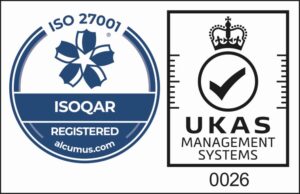Tools and Strategies MSPs Offer for Effective Remote or Hybrid Team Management
1. Unified Communications as a Service (UCaaS):
- Description: UCaaS platforms integrate various communication and collaboration tools such as VoIP calls, video conferencing, chat, and file sharing into a singular cloud-based service.
- Benefit: Ensures seamless communication regardless of an employee’s location, fostering team collaboration.
2. Virtual Desktop Infrastructure (VDI) and Desktop-as-a-Service (DaaS):
- Description: These solutions provide remote users with access to a virtual desktop hosted in a centralized data center or cloud environment.
- Benefit: Employees can access their work environment from any device, anywhere, ensuring consistent experience and performance.
3. Remote Monitoring and Management (RMM):
- Description: RMM tools allow MSPs to monitor, maintain, and manage remote endpoints, networks, and systems without intruding on user activity.
- Benefit: Proactive identification and resolution of IT issues, ensuring minimal downtime and smooth user experiences.
4. Cloud-based Project Management and Collaboration Tools:
- Description: Software like Trello, Asana, or Microsoft Teams that allow teams to coordinate on tasks, manage projects, and communicate in real-time.
- Benefit: Ensures everyone is on the same page, promoting transparency and accountability.
5. Virtual Private Network (VPN) Solutions:
- Description: VPNs create a secure connection between the user and the company’s internal network, encrypting data transfers.
- Benefit: Secure access to company resources from remote locations, safeguarding sensitive data.
6. Endpoint Security and Multi-Factor Authentication (MFA):
- Description: Endpoint security solutions protect devices from threats, while MFA adds an additional layer of security by requiring two or more verification methods.
- Benefit: Enhanced security, ensuring that only authorized individuals can access company resources.
7. Data Backup and Disaster Recovery Solutions:
- Description: Regular backups of critical data to cloud or off-site locations, coupled with strategies for quick recovery after data loss events.
- Benefit: Business continuity even in the face of unforeseen disruptions or cyber threats.
8. Employee Monitoring and Productivity Tracking:
- Description: Tools that monitor computer usage, application activity, and overall productivity without compromising employee privacy.
- Benefit: Helps managers understand work patterns, ensuring accountability and efficient resource allocation.
9. IT Helpdesk and Support:
- Description: Centralized support channels, often 24/7, for employees to report and resolve IT-related issues.
- Benefit: Quick resolution of technical problems, ensuring employees remain productive.
10. IT Training and Cybersecurity Awareness Programs:
- Description: Training modules or workshops that educate employees about best practices, latest tools, and cybersecurity threats.
- Benefit: An informed team is less likely to make mistakes that could jeopardize security or productivity.
The shift to remote and hybrid work models is here to stay. While it presents certain challenges, the tools and strategies offered by MSPs can make the transition not just smooth, but advantageous. By leveraging these solutions, businesses can ensure security, enhance productivity, and foster a collaborative environment, irrespective of where their teams are located.




